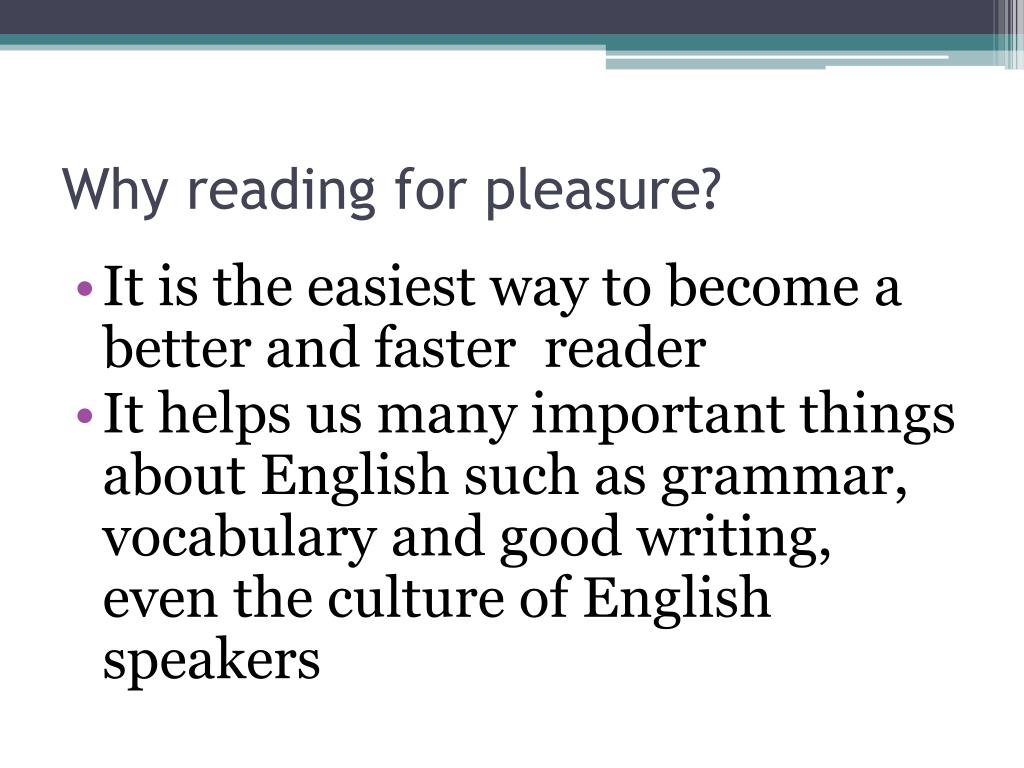Pleasure promoting reading
Table of Contents
Table of Contents
Reading for Pleasure Research: The Benefits of Reading for Fun
Do you remember the last time you read for pleasure? For many of us, finding time to read can be a struggle, but did you know that regularly reading for fun can have numerous benefits? It’s true! Reading for pleasure research shows that reading not only improves your literacy skills but also has positive effects on your mental and emotional well-being. Let’s take a closer look at how reading for pleasure can benefit you.
The Pain Points of Reading for Pleasure Research
Many people associate reading with work or academic-related tasks, leading to a lack of motivation to read for pleasure. Additionally, with the rise of technology, social media, and other distractions, people often find leisure reading to be a waste of time. Lastly, finding a book that piques our interest can sometimes feel like a daunting task.
The Target of Reading for Pleasure Research
Reading for pleasure research aims to understand the personal, social, and academic benefits of reading for enjoyment. The research encompasses various disciplines, including education, psychology, linguistics, and sociology, among others.
Main Points of Reading for Pleasure Research
Research has demonstrated that reading for pleasure can improve cognitive function, empathy, and creativity, among other positive outcomes. Additionally, it can reduce stress and provide a sense of escapism, leading to improved mental health. Studies have also shown that children who read for fun perform better academically and have a more extensive vocabulary than children who do not.
Why Reading for Pleasure is Important
For as long as I can remember, I have found solace in reading. I recall spending summers immersed in fictional worlds, completely engrossed in the storylines and character development. As I got older, I realized that reading not only provided me with a sense of entertainment, but it also helped me develop my writing skills and vocabulary. Reading allowed me to expand my perspectives and learn new things, all while fostering a love for learning.
If you’re struggling to find time to read, try setting aside a few minutes each day to read for pleasure. Whether it’s a book, magazine, or online article, reading can provide a much-needed mental break and improve your overall well-being.
The Target of Reading for Pleasure Research
For educators, reading for pleasure research emphasizes the importance of incorporating leisure reading into the classroom. By creating a positive reading environment and providing students with books of interest, educators can improve academic outcomes, increase reading motivation, and develop lifelong readers.
How to Make Reading for Pleasure a Habit
One of the best ways to turn reading into a habit is to find books that interest you. Whether you love mysteries, romance, science fiction, or non-fiction, discovering the genre that speaks to you is essential. Additionally, setting goals for yourself, such as reading a chapter a day or reading a certain number of books per year, can help make reading a consistent part of your routine.
The Role of Libraries in Reading for Pleasure Research
Libraries play a crucial role in promoting reading for pleasure research. By offering a wide variety of books and resources, libraries provide access to reading materials at little to no cost. Additionally, many libraries offer reading programs, clubs, and events, providing a sense of community and promoting lifelong learning.
Question and Answer
Q: How much time should I dedicate to reading for pleasure?
A: While the amount of time you dedicate to reading may vary, aim to read for at least 20 minutes each day. This can help make reading a habit and improve your overall well-being.
Q: What are some ways to find books to read?
A: Some ways to find new books include asking friends for recommendations, browsing online bookstores or social media book clubs, and attending library events or author readings.
Q: Can reading for pleasure improve my mental health?
A: Yes! Reading has been shown to reduce stress, increase empathy, and promote relaxation, leading to improved mental and emotional well-being.
Q: How can I motivate my child to read for pleasure?
A: Encourage your child to read by providing books of interest, creating a designated reading space, and modeling reading behavior by reading yourself.
Conclusion of Reading for Pleasure Research
Reading for pleasure research has shown that leisure reading can provide numerous benefits. From improving cognitive function to reducing stress, reading for fun should be an essential part of our daily routines. By promoting lifelong reading habits, we can improve academic outcomes, increase our overall well-being, and foster a love of learning.
Gallery
PPT - Reading For Pleasure PowerPoint Presentation, Free Download - ID

Photo Credit by: bing.com /
Research Evidence On Reading For Pleasure - Publications - GOV.UK

Photo Credit by: bing.com / pleasure reading evidence research gov
PPT - Promoting Reading For Pleasure PowerPoint Presentation, Free

Photo Credit by: bing.com / reading pleasure promoting than
Reading For Pleasure - Co-op Academy Swinton

Photo Credit by: bing.com / pleasure swinton
PPT - Promoting Reading For Pleasure PowerPoint Presentation, Free

Photo Credit by: bing.com / pleasure promoting reading





